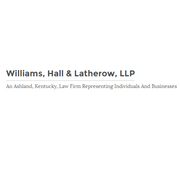Are Verbal Contracts Ever Legally Binding?

When you agree with a close friend about paying for dinner, you don’t expect them to go back on their promise. However, when making verbal contracts with strangers or clients, there’s always a risk you’ll get the short end of the stick. If you’re wondering whether you can enforce these deals in court, use the following guide to learn the basics before meeting with an attorney.
Are Verbal Contracts Legally Binding?
For your verbal contract to be authenticated, there must have been an offer and an acceptance of that offer. For example, one party offers to mow a lawn for $80, and the other party says, “yes.” Also, both involved parties have to give something up of actual value—such as money and lawn mowing services. Both parties must also be aware of the contract and its terms.
 Unfortunately, without written proof of the agreement, it can be hard to enforce a contract. In a court setting, it can easily turn into a matter of hearsay, and the courts may be unable to identify the key terms of the agreement mentioned above. If the party asking for the contract to be enforced can prove these terms, the contract may be upheld—but it ultimately depends on the judge’s opinion.
Unfortunately, without written proof of the agreement, it can be hard to enforce a contract. In a court setting, it can easily turn into a matter of hearsay, and the courts may be unable to identify the key terms of the agreement mentioned above. If the party asking for the contract to be enforced can prove these terms, the contract may be upheld—but it ultimately depends on the judge’s opinion.
The most common ways of proving a verbal contract are to show payment for the service or product provided—such as a check or Paypal® transaction—or to show evidence of the services being performed, such as a picture of the individual mowing the lawn. A witness may also offer testimony to prove the terms of the agreement.
What Is the Statute of Fraud?
This statute states that some contracts must be in writing; otherwise, they can’t be enforced. However, the exact details of this law are different from state to state. For example, in Kentucky, you can’t enforce a verbal contract that deals with the sale of real estate, agreements made in consideration of marriage, or for services that will be carried out one year or more after the deal is made.
If you’re interested in learning more about this complicated legal matter, turn to the attorneys at Williams, Hall & Latherow, LLP. This Ashland-based firm serves clients throughout Kentucky, but they are also licensed in Ohio and West Virginia. From business law to medical malpractice, their lawyers will fight for your rights and best interests at every turn. To learn more about their practice areas, visit the website or call (606) 329-1919 to arrange for a free consultation with a trusted attorney.
About the Business
Have a question? Ask the experts!
Send your question

